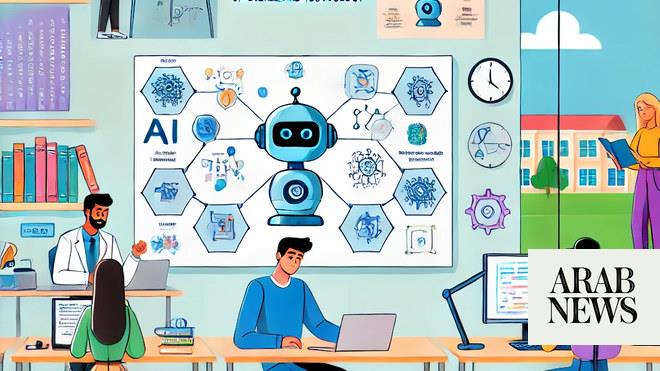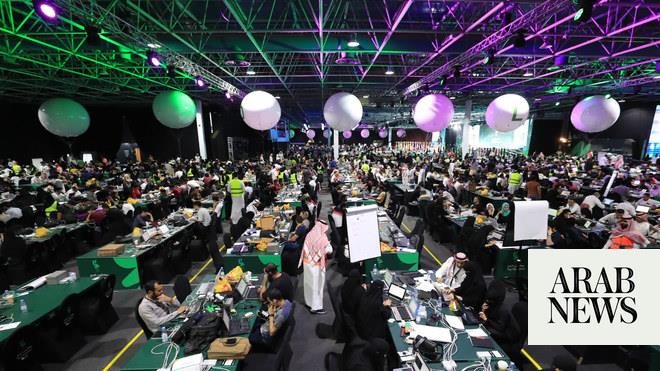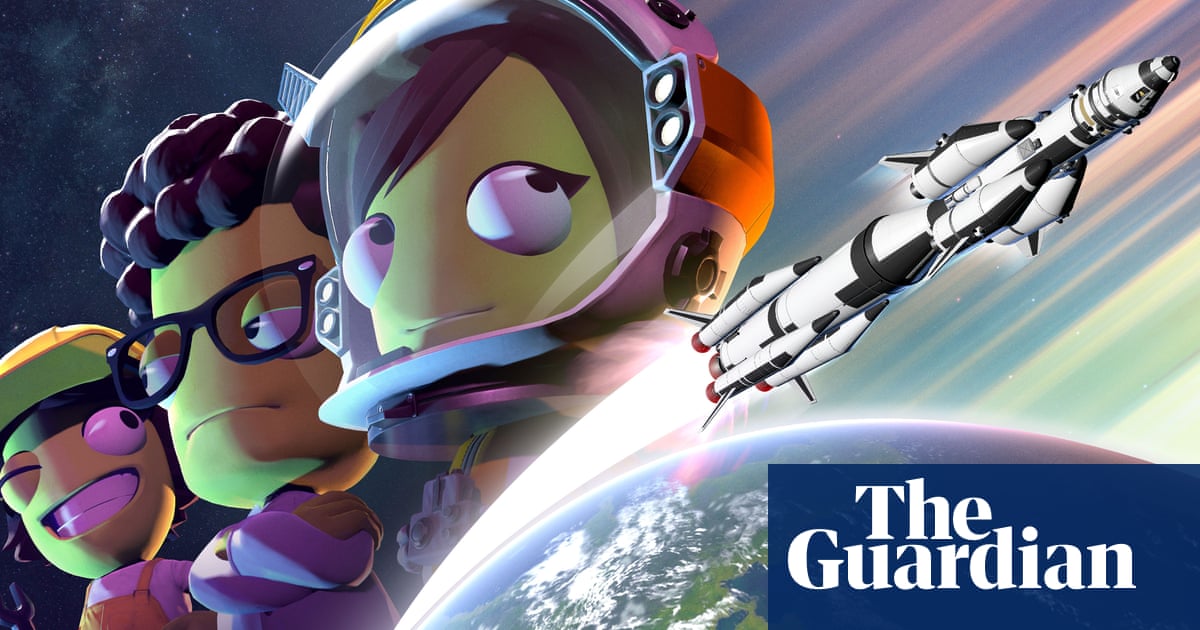
Ronan Carolan has always been the creative type, and after attending an art school’s open day last autumn he thought he had settled on illustration as a degree.
But as the Ucas deadline approached, he began to have second thoughts. “I noticed more and more things drawn by AI,” he says, referring to a magazine cover among other examples. “Considering that only a few years ago, the images it generated were entirely nonsensical, it is scary how fast it has progressed.”
Carolan, who is 18 and has just completed an art foundation course in Cardiff, decided architecture would be a safer path to follow. “It feels like it will be a more secure degree. Lots of psychology goes into architecture,” he says. “You need to understand the core of what you’re doing.”
He is doubtful that images made by artificial intelligence will replace the art exhibited in galleries, but he worries that commercial projects previously requiring a team of artists may in the future need only one to work with AI and neaten up the final product.
“The options will probably get limited as time goes on. Personally, I’d find it a bit depressing if there wasn’t a human element, but whether or not we’d notice I’m not sure. I always thought things like art would be one of the last things robots would be able to do.”
Carolan is far from alone in harbouring such concerns. Dave Cordle, a career development professional in Surrey, said that many of the young people he speaks to are concerned about the impact of AI on their work futures. “Because of the publicity around ChatGPT, it is planted firmly in the minds of young people.”
He believes, however, that younger generations “have a slightly more objective view” than their elders. “Their parents or teachers will say things like ‘there will be no jobs in the future’, which just puts them under more pressure. They’re already in an education system that doesn’t give skills they need to thrive at work.”
Cordle also emphasises that while the focus has been on the roles in the line of fire, the development of AI will also create new positions for young people will be strong contenders. “They are used to tech, 16- to 25-year-olds have grown up with huge changes in their lifetime. They are hugely adaptable.”
He advises people worried about their career paths in the face of AI to do their research, speak to people in their field and find a niche where possible. “They may discover other angles. There may be a market that wants a real person who can get the nuance and emotion of what someone is saying rather than a robotic response.”
But he also advocates realism: “There are some things that will be replaced.”
Elizabeth Lund, a master’s student in translation in Edinburgh, says she is lucky because she believes her preferred niche is likely to be least affected by the expansion of AI. “Literary translation is most resilient as I think publishers see the merit of having human translation. I was most interested in this, and this has solidified my choice.” She acknowledges though that “literary translation is already an extremely competitive field”.
When Lund, 24, began her course, she felt optimistic about her employment prospects, even if she did not land her dream job right away. “The majority of jobs for translators are translating the bric-a-brac of everyday life – instruction manuals, advertisements, websites. Since this can be done much quicker with AI, I fear that the majority of translation jobs are at risk.”
The use of machine learning in this field is hardly new, but the breakneck pace at which it is improving is worrying, Lund says: “With the advent of ChatGPT, the future is bleak.”
Those who studied computing may feel differently. Conner Gulley, 22, a student in Leeds, is not entering the job market with a job in AI, but he feels vindicated in his degree choice. He is beginning a role as a software engineer later this summer, working in user interface and backend development, and plans to continue learning about AI during his free time. “AI is still a new field, and not something that everyone understands yet. AI emulates human intelligence currently, and isn’t equivalent to what is called ‘general’ intelligence.
“For many it’s a big, scary thing. I would rather be in a career where I can look into AI and understand it. My main priority is to stay informed on the newest developments as much as possible. It’s the responsibility of those of us going into the field, and perhaps all us youngsters in general, to try and stay up-to-date with it.
“The world will only get more technology-dependent, but the more I learn about AI, the more leery I become. Like with anything else that involves human input, there will be biases, and this has shown up in AI. If nothing else, I feel more keen to start my career in computing to keep an eye on it.”












